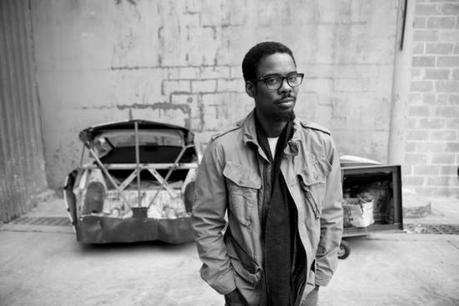You may be familiar with Chris Rock’s explanation of the difference between the rich and the wealthy: Shaquille O’Neal is rich. The guy who pays his salary is wealthy. (OK, substitute LeBron James to bring this up to date.)

Chris Rock
I’ve been thinking about this lately as I continue to hear stories about income inequality in the U.S. and worldwide. Often, the stories focus on the spread between a CEO’s annual pay and that of the average worker in his or her company.
The truth is, that’s a shortsighted perspective. Income includes the money you’re paid for the work you do, but it also includes profits, interest payments, dividends, rents, royalties and other forms of money received from income-producing assets.
I’ve also been thinking about a radio interview I heard more than a decade ago with a middle manager who was being laid off. When asked how he felt about his plight, he said, in effect: “As an employee of the company, I’m really upset. But as someone who has stock in the company, I’m ok with it.”
So there’s the difference. Ownership of solid, income-producing assets provides much greater income and security than a simple paycheck for time worked, even if the paycheck is substantial. It’s the difference between the well-to-do, the rich, the wealthy, and everybody else.
That’s also why the gap continues to widen between the haves and the have-nots. The have-nots find it difficult if not impossible to put money into anything except food, clothing, shelter and other basic necessities. This is especially true when wages stay flat or decrease while inflation increases, even at modest levels.
The third thing I’ve been thinking about is this statement: If the government could confiscate all the wealth in the country and redistribute it equally, it wouldn’t be long before, once again, there would be very rich and very poor people. I believe that’s true, but it probably would take a long while to reach the huge imbalance we see today. (How huge? Check this out.)
This is maybe the central problem of our time. It raises a host of issues, some economic, some moral, some practical. If the disparity continues to grow, how do we provide for the weakest and poorest among us? (Or do we even care?) Where will the customers be for all those businesses that the richest among us own? Even if you’re super rich, there’s still a limit to how much you can consume, how many cars you will buy, how many luxury cruises you will take, and how many fine restaurants you’ll patronize. It’s crucial to have enough capable consumers with enough disposable income to buy goods and services.
Despite the talking heads you see on TV, there are no easy answers to this problem, and certainly there is no single easy answer. Kicking Obama out of office won’t solve it. Throwing the Republicans out of the House won’t solve it. Drowning the federal government in a bathtub won’t solve it. Sticking it to Putin won’t solve it. Keeping illegal immigrants out of the country won’t solve it (but bringing in brilliant minds from other nations can help).
As a country, we’re up against economic pressures we haven’t seen in our lifetimes, and we certainly haven’t faced up to them. After World War II, the manufacturing capacity of most of the rest of the world was bombed to smithereens. The war wasn’t fought on our shores, so we were the only game in town. We owned most of the wealth-producing assets, and there was plenty to go around.
Today, of course, the rest of the world is catching up. Other countries manufacture, and their work forces compete with ours for jobs.
Also, we’ve decimated many jobs through automation. (When’s the last time you dealt with a teller instead of an ATM? Bought something from a sales clerk instead of a website?) Again, in the “things I’ve heard” department, 47 percent of all U.S. jobs could be automated in the next 20 years, including many white-collar jobs. For years we’ve said that new jobs are created whenever old jobs are displaced by technology. I’m not sure that trend can be sustained.
I’m highly doubtful that either Democrats or Republicans have all the answers, and I’m even more doubtful that blind allegiance to ideology is going to help solve these problems. I certainly don’t have the answers, but I’m convinced President Clinton is right about one thing: We’re all in this together. Let’s start acting like it.

